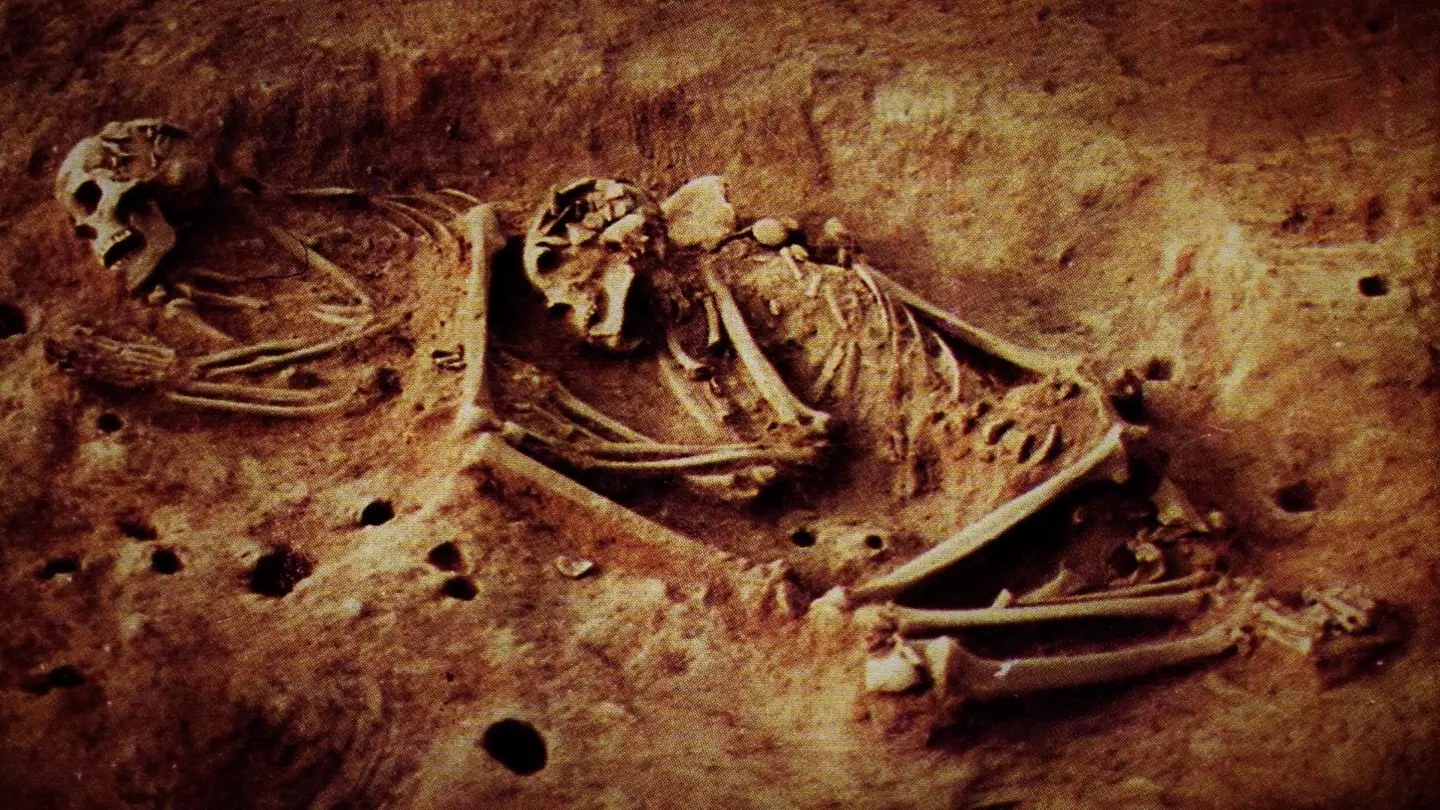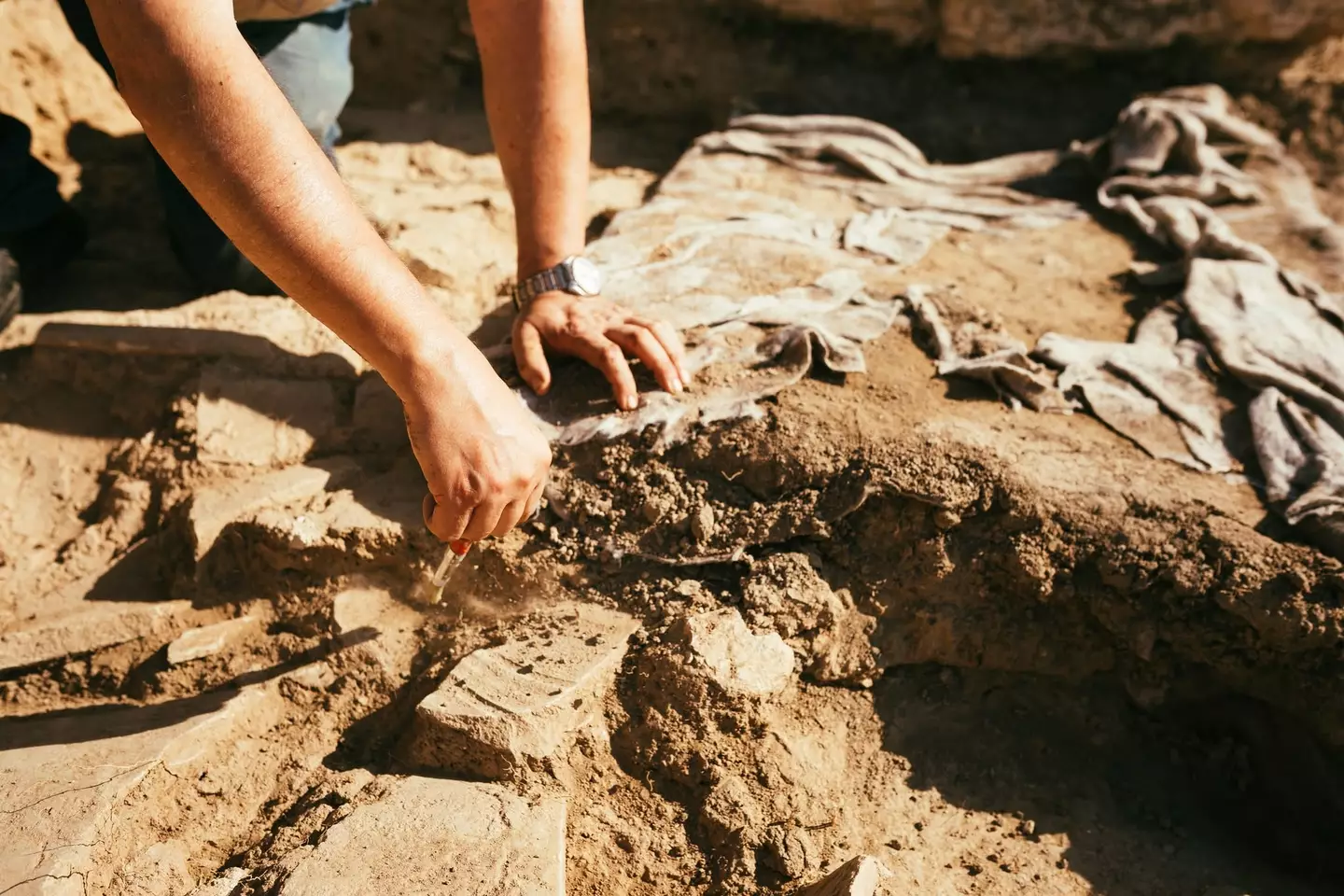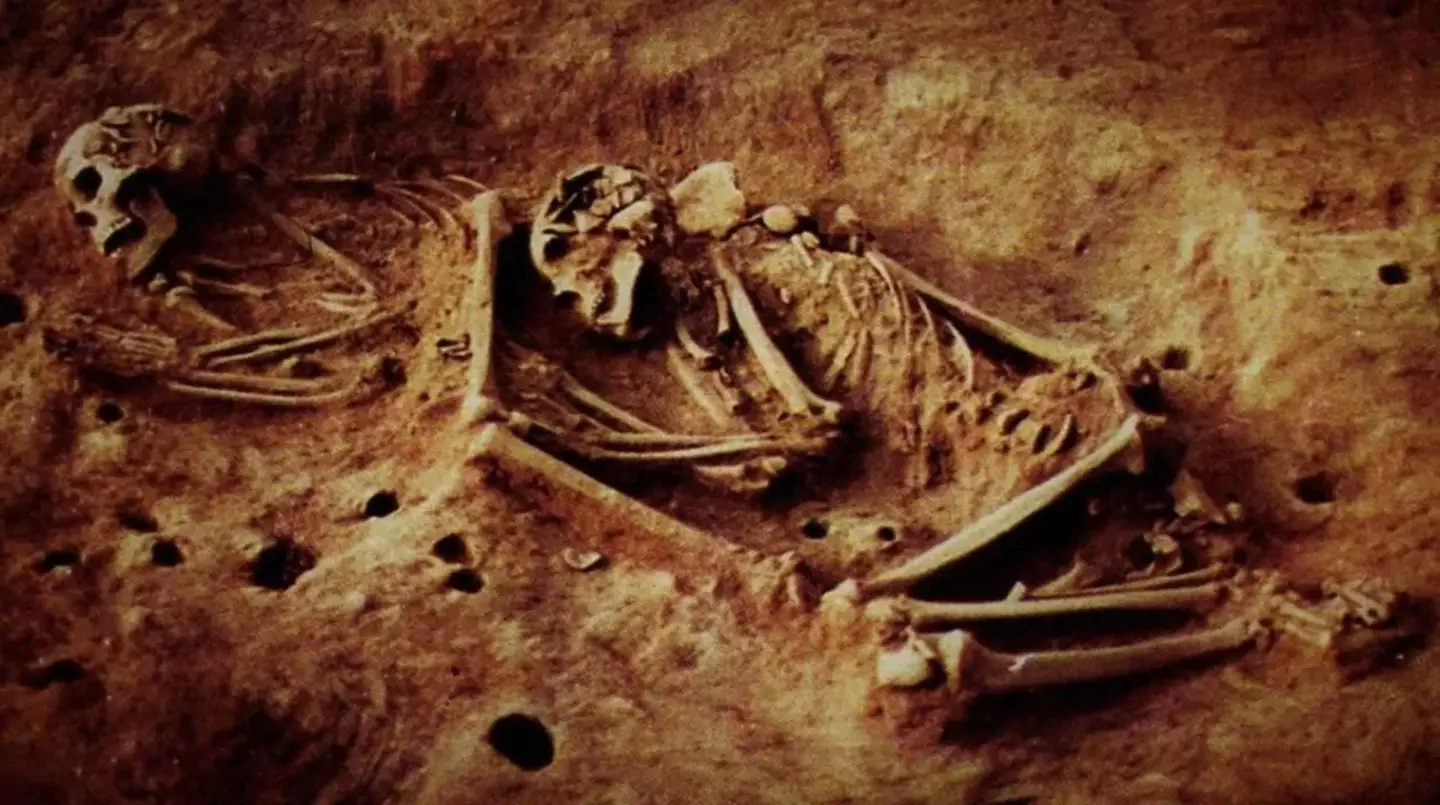
Topics: History, Science, World News

Topics: History, Science, World News
Archeologists have found 6,000-year-old skeletons with DNA that could change everything that we know about our human existence.
It’s not every day that new information presents itself which could see human history completely rewritten.
But it has just happened.
According to researchers, remains belonging to hunter-gatherers in Checua, Colombia, have DNA that doesn’t match any Indigenous group in the region in modern day.
Advert
The ancient preceramic site is home to remains of people who have now been found to hold a lineage that is totally extinct in the world and could hold the key to us understanding more about the earliest humans to reach South America.
According to the archeologists, the lineage found in the DNA dates back to around 6,000 to 500 years ago, belonging to the Bogotá Altiplano people, giving them a rare genetic timeline thanks to the data retrieved from the 21 bodies.

Using DNA from their bones and teeth, the samples showed that the oldest people at Checua carried a distinctive ancestral signature which has been totally wiped out from the world today.
Kim-Louise Krettek, lead author and a PhD student at the Senckenberg Center for Human Evolution in Germany, said: "This area is key to understanding how the Americas were populated.
"It was the land bridge between North and South America and the meeting point of three major cultural regions: Mesoamerica, Amazonia, and the Andes."
According to the genetic analysis, the early people in the region were not related to any other ancient group in South America, nor did they share genetics with North American groups.
Krettek explained: "Our results show that the Checua individuals derive from the earliest population that spread and differentiated across South America very rapidly.
"We couldn't find descendants of these early hunter-gatherers of the Colombian high plains, the genes were not passed on.
"That means in the area around Bogotá there was a complete exchange of the population."
The study found that approximately 2,000 years ago, there was a sudden genetic shift in the Bogotá highlands, potentially marking the time when the Checua nationals disappeared and were then replaced by a different group of people.

This new group are similarly matched by DNA as the ancient Panamanians and modern Chibchan-speaking groups in Costa Rica and Panama, but what happened to their predecessors is unknown.
Krettek explained that they may have migrated and lost their genes along the way as they bred as no war or violence was observed to have been the cause of them being wiped out.
"In addition to technological developments such as ceramics, the people of this second migration probably also brought the Chibchan languages into what is present-day Colombia. Branches of this language family are still spoken in Central America today," said co-author Andrea Casas-Vargas of the Universidad Nacional de Colombia.
"That genetic traces of the original population disappear completely is unusual, especially in South America," Casas-Vargas added.
However, considering western Colombia, Venezuela, and Ecuador have yet to be genetically analysed, there isn’t a lot of information to go on when it comes to genetic shifts and migration.
Krettek said: "Ancient DNA from those areas will be crucial in understanding how humans migrated into South America."
The study, which is published in the journal Science Advances, tested genetic material from five archeological sites and has produced something remarkable, making it the first of its kind.
Senior study author Professor Cosimo Posth, from the University of Tübingen, said as per Phys Org: "These are the first ancient human genomes from Colombia ever to be published."